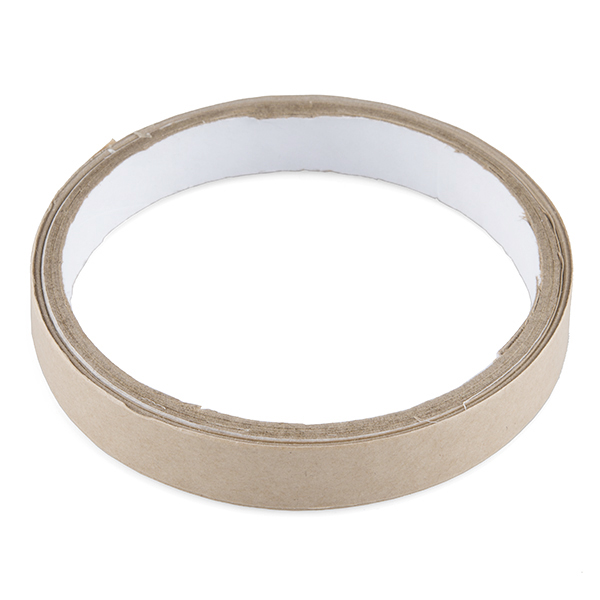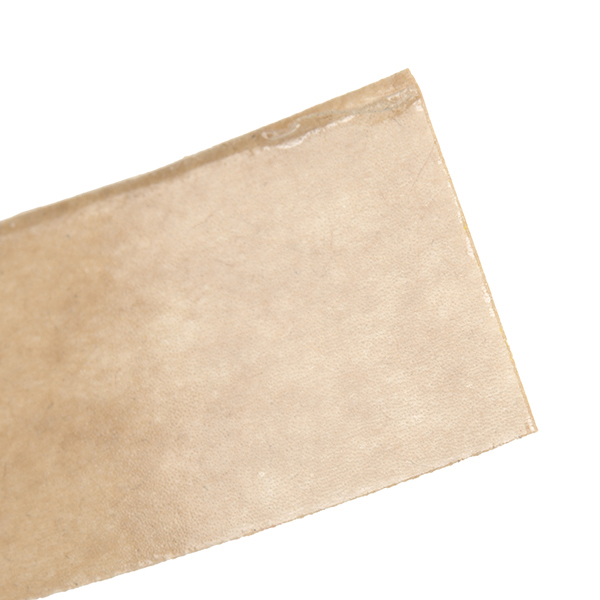Z-Axis Conductive Tape - 1/2" (3 yards)
This Z-Axis Conductive Tape is an easy-to-use, pressure sensitive double-sided tape designed for connecting, bonding and grounding flex circuits and PCBs. This conductive tape can connect most medium pitch flexible circuits through the Z-axis with other flexible circuits, PCB or LCD screens by simply applying pressure with your finger!
Each unit of this tape comes in 3 yard, 1/2" strips to provide you you with plenty of uses.
Z-Axis Conductive Tape - 1/2" (3 yards) Product Help and Resources
Core Skill: DIY
Whether it's for assembling a kit, hacking an enclosure, or creating your own parts; the DIY skill is all about knowing how to use tools and the techniques associated with them.
Skill Level: Noob - Basic assembly is required. You may need to provide your own basic tools like a screwdriver, hammer or scissors. Power tools or custom parts are not required. Instructions will be included and easy to follow. Sewing may be required, but only with included patterns.
See all skill levels
Core Skill: Electrical Prototyping
If it requires power, you need to know how much, what all the pins do, and how to hook it up. You may need to reference datasheets, schematics, and know the ins and outs of electronics.
Skill Level: Noob - You don't need to reference a datasheet, but you will need to know basic power requirements.
See all skill levels
Comments
Looking for answers to technical questions?
We welcome your comments and suggestions below. However, if you are looking for solutions to technical questions please see our Technical Assistance page.
Customer Reviews
No reviews yet.



How about tape that conducts electricity in the 4th dimension? Its totally what I need to complete my flux capacitor!
To review and answer any questions on how small the SMD IC can be, I just tested this with a QFN, MPU6000 (https://www.sparkfun.com/products/11234), and it works. I'm surprised and happy that it does. Doesn't need pressure to be held down or anything. Image: http://i.imgur.com/mrN2a84.jpg
I also tested it with an MSP430F248 which is an LQFP64, and I need to hold it down (add pressure) to get it working. The connection is flaky. Going to try again and see what makes the connections reliable.
Is this tape reliable enough to fix the flaky zebra connectors on the Nokia LCD screens?
it very well could work. We haven't tried anything along those lines, but based on what we have tried, I'd imagine it would work fine.
What kind of black magic trickery is this? Fascinating product.
Keep in mind that the datasheet specs the minimum gap between 2 conductors as 0.4mm. Conductors spaced closer together than 0.4mm may short together. The Atmega328 in TQFP shown in the video has pin to pin gap of 0.35mm to 0.5mm from Atmel's datasheet.
As well as the note that E=something points out, the datasheet gives use temperatures as -40 to 85C. It's possible that 0.35mm pitch insulates fine at room temperature, but may break down at extremes. Similarly you don't know for sure how the insulation properties degrade over the long term.
It also says you can qualify shorter spacings...which heavily implies a good safety margin.
does anyone know the current rating for this tape? i plan on useing it to reattach a wire to the glass on a window defogger and this is the best i have found so far
...has this been tested with a BGA? Cause that would be really neat!
I've read the datasheet and watched the video. This stuff is super-science...and super cool. I'd like to use it to build pcb's, but a few questions: Once pressure is applied we have a connection...cool...then when pressure is removed will it stay stuck conducting? Does the tape adhere and stick or something once it's pushed for a certain time?
I have sitting in front of me a 2-sided flexible pcb where it appears they have dimpled copper to create a connection from 1 side of the copper to the other. Can this tape do that?
The data sheet lists several different ACF-#### product numbers in the Selection Guide section on page 4. What is the product number for this tape?
The one headlined in, and referenced throughout, the datasheet; 3M™ Electrically Conductive Adhesive Transfer Tape (ACF) 9703. The products listed on page 4 are just suggested alternative products.
Huh, looks like clamping might pretty much be required to make this work well. it's good that putting foam and the inside of a case might be able to provide sufficient compression force, because if this required plastic or metal clamps, it'd be a dealbreaker.
The specs say this is for flexible connections
"To assure electrical resistance stability of Tape 9703 in any flexible circuit interconnection application"
So would this be a possible solution for a pressure sensitive pad you can step on. Something like a square for a DDR dance pad. I am thinking Halloween here and something that triggers when someone steps on it.
It sounds doable. Give it a try and let us now how it works!
What does "Z-axis" mean?
Nevermind. For others wondering, It means that it only conducts through the tape, and not lengthwise along it
Thank you... I was wondering if "Z-axis" was just a brand name or something. It would be good to put this in the description.
Just what I need for connecting a 50-pin LCD flex to a PC board. With foam and clamp should be gread as opposed to soldering a microscopic 50 pin flex (top entry) connector.